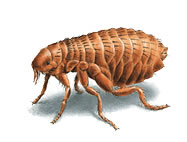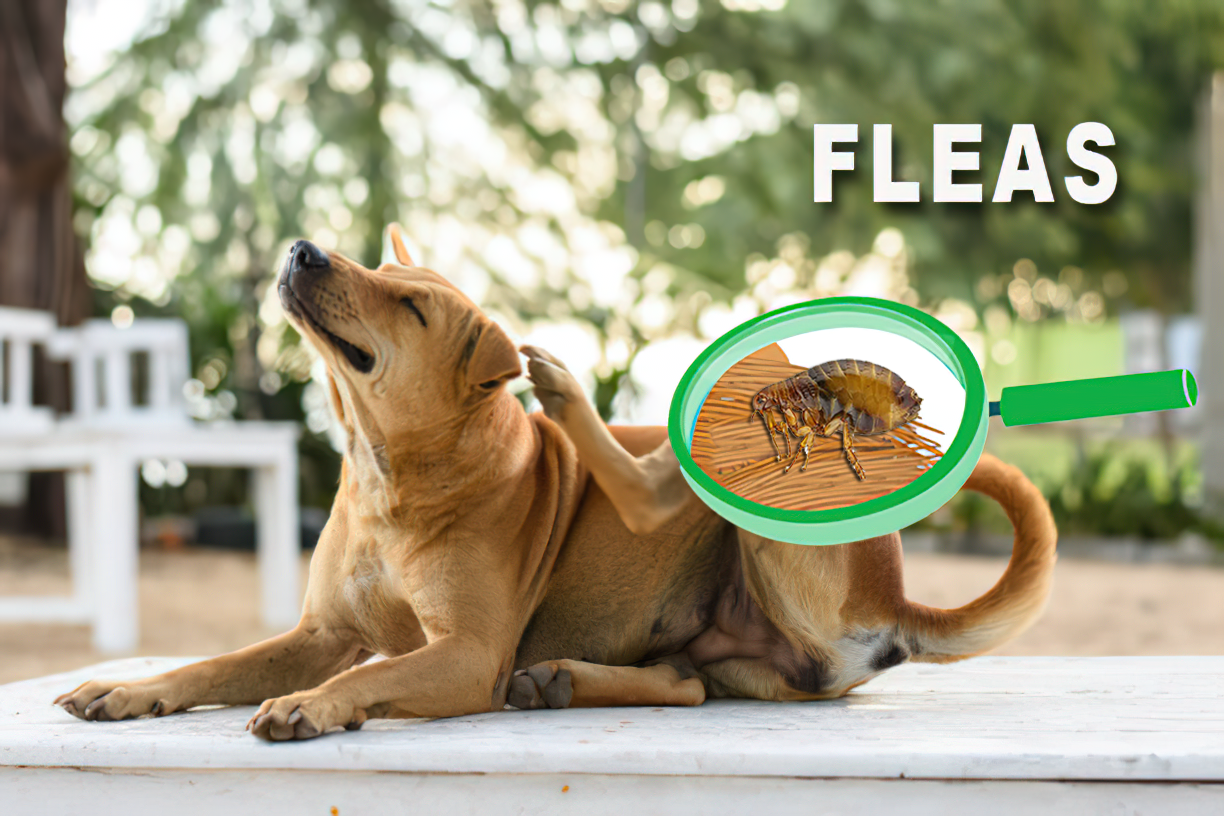What Do Fleas Look Like
- Size: Fleas are tiny, are wingless, and only about 1/10th of an inch long.
- Color: Fleas bodies are reddish-brown and shiny. They are covered with microscopic hair. These pests can compress so they can fit almost anywhere.
- No wings: Fleas can jump a great distance even though they don’t have wings.
- Lifespan: On average, adult fleas live from several weeks to several months. Fleas can stay in the larvae dormant for months while waiting for better weather.
How Do Fleas Get In Your Home?
Fleas are spread by your pet or from other animals from your neighbors. Another typical method of spreading is during boarding or playdates. Fleas attach to your pet when it’s outside. They move from your pet’s fur to your rug and the place your pet sleeps. Once you have a flea infestation, getting rid of them from your home and yard can be difficult. Get your pest expert, veterinarian, gardener, and house cleaner to get the best results.
How Serious Are Fleas?
Flea bites cause swollen, itchy marks on your skin. For some people, these bites can cause allergic reactions. Fleas are even capable of transmitting several diseases. Your furry pets are the most at risk.
For most people, the most severe problem from fleas is the time and effort to remove them. To get rid of fleas, you should treat infected animals. Then clean the flea-infested areas, and take measures to keep fleas from returning.
How Can I Get Rid of Fleas?

If your pet is a carrier of fleas, your home may be their nursery. Only 5% of a flea infestation is attributed to fleas hosted by your pet. The remaining 95% is from the larvae, eggs, and cocoons found in your home. You must tackle the flea problem from all angles. Otherwise, you can’t get rid of flea infestation.
To be effective, you must de-flea your pet and the home environment together. Depending on where your pet travels, the affected area may include your entire house and yard.
Get Rid of Fleas From Inside Your Home
- Use a commercial vacuum on floors, furniture, and beds. Cracks and tight spaces are the most typical hiding places for fleas. Try to use a vacuum with a bag. This way, you can throw away the bag without anyone coming into contact with its contents.
- Use a steam cleaner on upholstery and carpets, and pet beds. Heat and soap kill fleas in every stage of life. Give special care to spots where your pet usually lies down.
- Wash all pet bedding in hot water. Use your dryer’s highest heat setting. If the flea problem is severe, get rid of old bedding.
- Have Moat Pest Control Chemically Treat Your Home and Yard. Aerosol sprays are recommended over foggers. Moat will spray under beds or other places that our foggers cannot reach. We will use an insecticide that contains both an adulticide and growth regulators. Adulticide, such as permethrin, kill adult fleas. Insect growth regulators, such as methoprene kill the larvae, egg, and pupae. Until the spray drys, people and pets should stay away from your home.
- Treat your Dogs and Cats. When you are not sure how to treat fleas, call your vet for advice. Vets are aware of the best flea treatments and preventatives. Vets can help you find the best and safest treatment option for you and your dog.
How to Remove Grass Fleas From Your Yard
To get rid of grass fleas from your yard, look for the best hiding places. Look for sites that are shady, humid, and warm. Sun-exposed areas can get too hot, so fleas stay away.
Treat spot areas like where your pet sleeps. These are hanging-out spots for fleas.
With your list of potential flea problem spots, follow this advice:
- Mow your lawn regularly. Rake these areas thoroughly. Fleas hide in tall grass. Bag the grass and leaves rather than add them to your compost pile.
- Remove all yard debris. Try to expose your yard’s shady areas to sunlight as you can.
- Add cedar chips to areas where your pet likes to lie down, under the bushes, and on flower beds.
- Ask your gardening center about nematodes. They are tiny worms that can eat parasite eggs and sulfur granules. You can add them around problem areas to help remove fleas.
If you have a hard time addressing grass fleas and need an expert. Call Moat Flea Control for flea insecticide.
Talk to Your Veterinarian about Flea Exterminator Cost
When you doubt how to provide treatment for your pet, please call your veterinarian. Vets are the experts on all the best flea treatments and preventative treatments.

